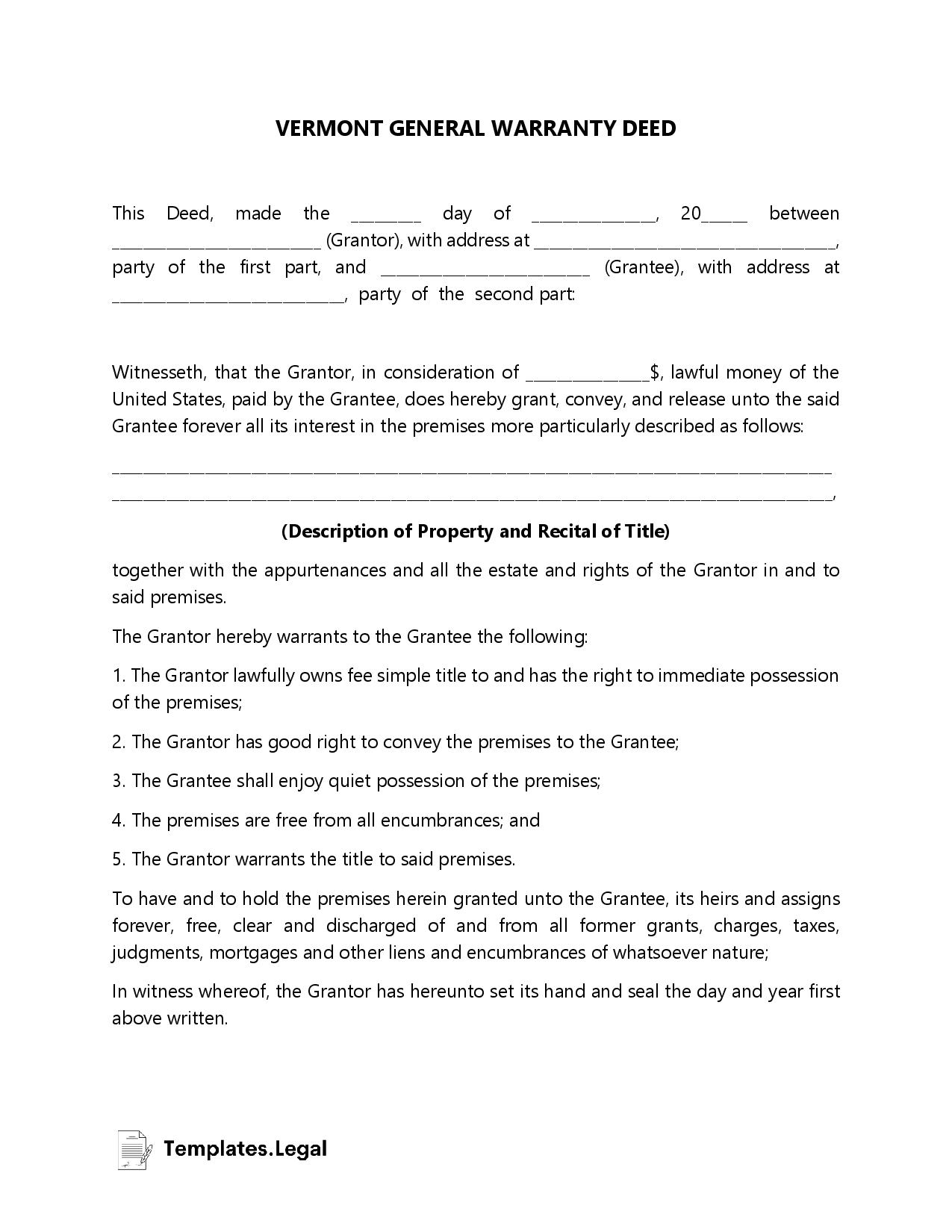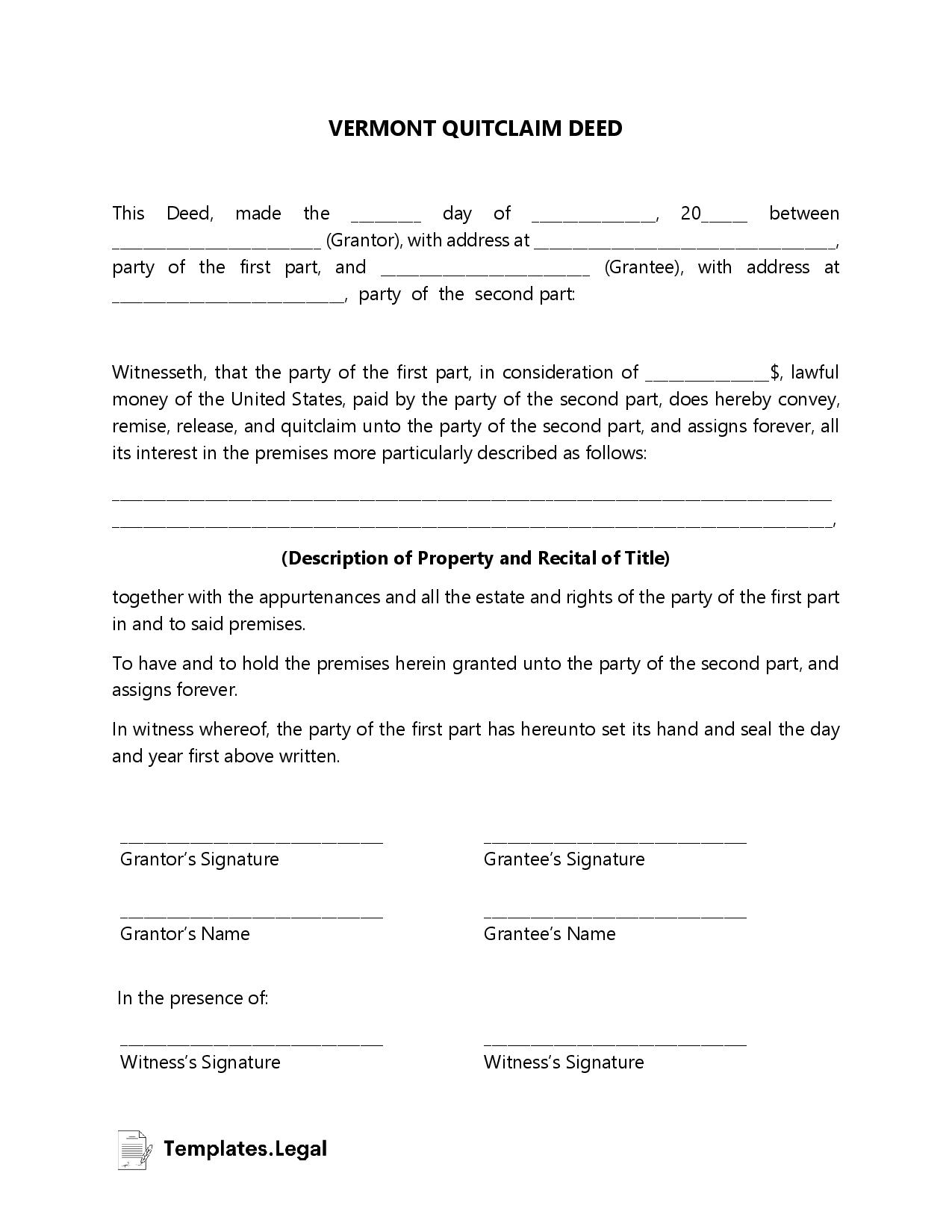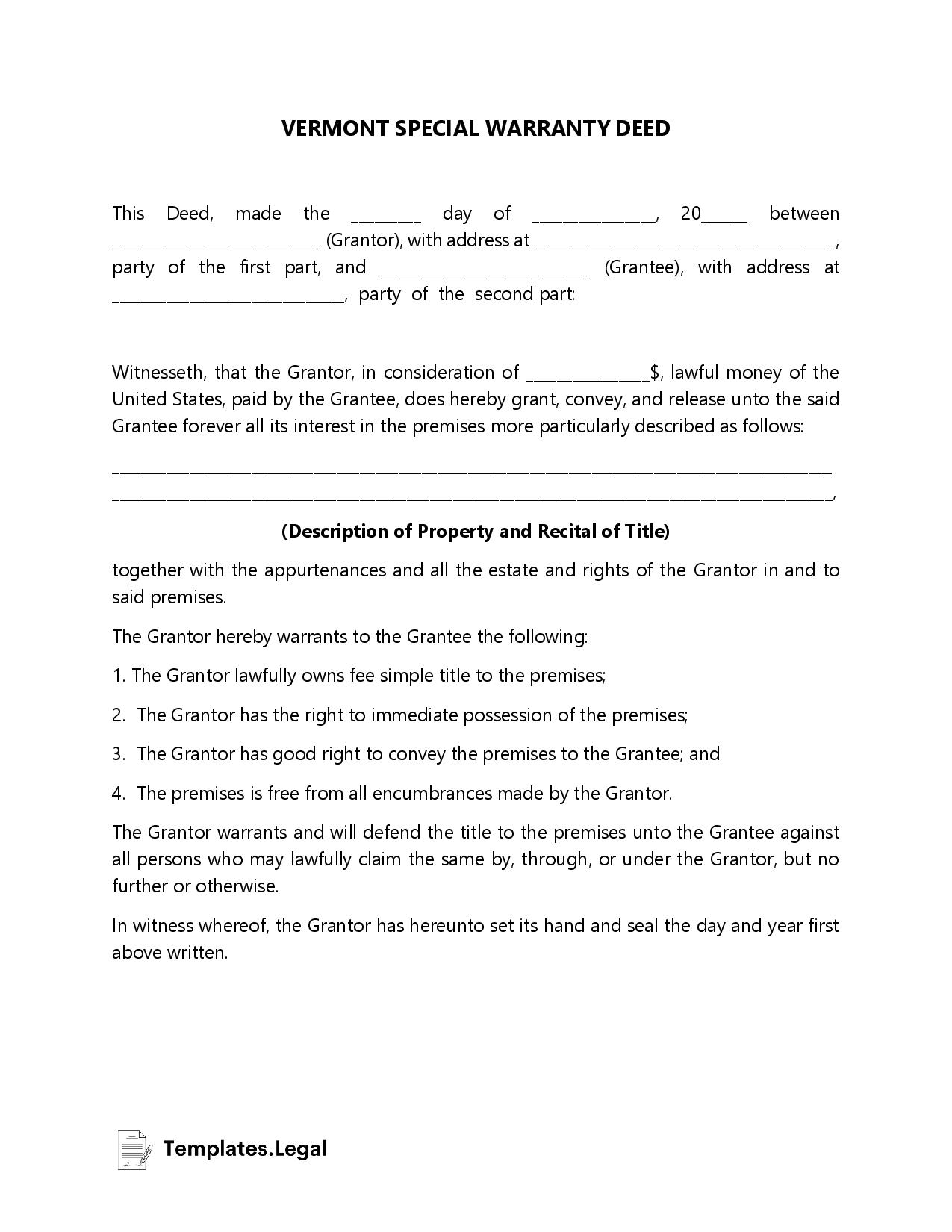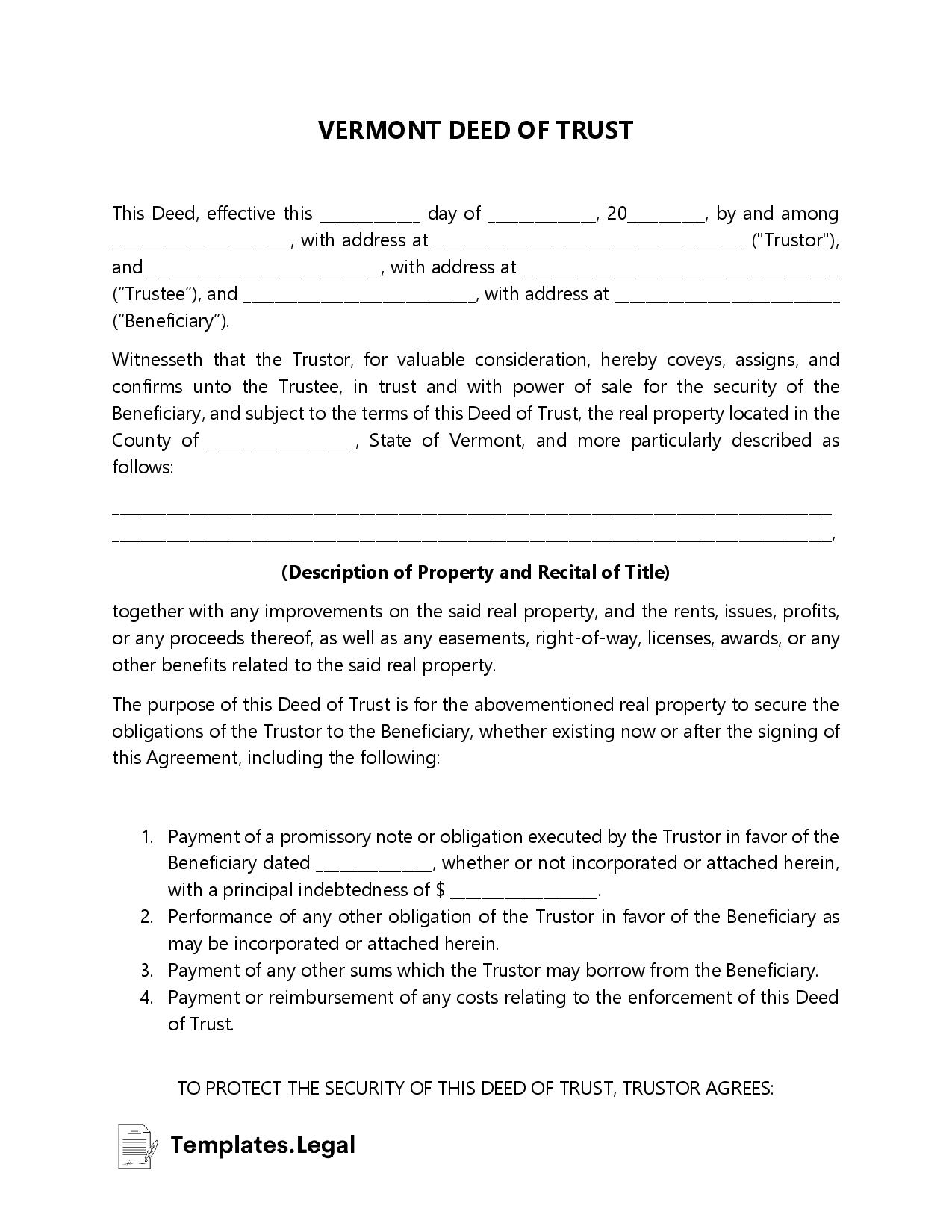Vermont Deed Forms & Templates
A Vermont deed form offers authorization to transfer land or property ownership. This process is done by completing a form to be recorded and filed with the town clerk’s office of the property or real estate in Vermont.
Vermont General Warranty Deed
A Vermont warranty deed is one of the most common ways to transfer ownership of property. Unlike other states, Vermont doesn’t provide a statutory form for warranty deeds or Vermont property deeds that require warranty covenants. For this reason, it’s crucial to include all the details of the transfer of ownership, then signed by a grantor and notarized.
Real estate transfer taxes on the property are payable when the deed is recorded or before the deed is recorded. This transfer tax is payable to the Vermont Department of Taxes.
Vermont Quit Claim Deed
Vermont Quitclaim deeds are typically easier to use for transferring property. This type of deed is often used between close relatives or family members and spouses. A Vermont quitclaim deed doesn’t provide the same guarantee to the title, as it is not subject to an insurance or title search before recording.
While quitclaim deeds are acceptable in most states, some attorneys recommend a general warranty deed where it’s essential to ensure no claims or liens to the property.
Vermont Special Warranty Deed
One of the most efficient ways to guarantee no claims or liens on a property is to file a Vermont special warranty deed. This specific deed guarantees no hidden claims, liens, or claims on the property during the grantor’s ownership or from previous property owners.
Vermont Deed of Trust
The Vermont deed of trust is a contract between a new home buyer and lender usually prepared at the time of a sale. This agreement stipulates the amount that the buyer must repay to the mortgage lender and that the lender will retain the legal title of the property until it is paid in full.
While a deed of trust indicates that the borrower doesn’t have full ownership of the real estate, it also proves that they will obtain complete ownership once the mortgage is paid completely.




